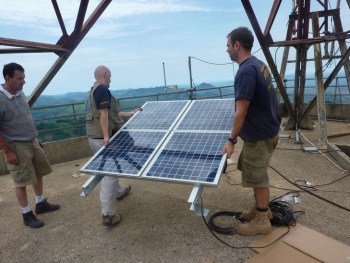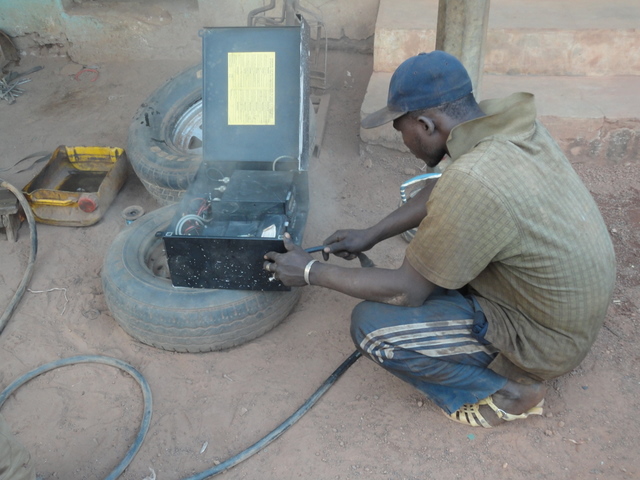
ETC Côte d'Ivoire Operation Comes to a Close
Cluster had been providing humanitarians with telecoms services for almost two years

Almost two years after disputed presidential elections sparked Côte d'Ivoire's second civil war in a decade, Emergency Telecommunications Cluster (ETC) operations in the country finally came to a close in December.
The ETC was activated in February 2011 when heavy fighting between the forces of two rival presidential contenders displaced thousands of civilians. As the humanitarian community mobilized to provide relief to IDPs (Internally Displaced Persons) in the west, the ETC provided internet connectivity, radio and telephone services.
Security telecoms infrastructure in the country "was good," says Ekue Ayih, the ETC Coordinator at the time, "but it definitely needed some upgrades. Some key components were in place but there were no proper processes or procedures."
Assessments had also revealed that radio coverage across Côte d'Ivoire was insufficient for a large scale humanitarian operation and identified five suitable locations for COMCENs (communications centres).
The ETC expanded the VHF security communications network by upgrading existing repeaters and putting up new ones in Danané and Duékoué. COMCENs were established in Abidjan, Bouaké, Man, Guiglo and Toulépleu, significantly enhancing security communications capacity. In addition, radio training on tracking, protocol, codeplugs and channel architecture was provided to humanitarian staff to build capacity.
The ETC developed a new frequency plan (with updated VHF frequencies), requested licenses from the government and worked with the United Nations Refugee Agency (UNHCR) to share those licenses that already existed. New codeplugs were created and placed on the ICT Emergency website for easy access while ETC staff reprogrammed radios in accordance with the new frequencies.
The fragmented government and spiralling violence also meant that internet connectivity across the country had been severely compromised. Internet cafés were set up in Bouaké and Man, while in the capital, Abidjan, WiMAX (Worldwide Interoperability for Microwave Access) was deployed in areas without cable or DSL (Digital Subscriber Line) to provide fixed and mobile internet access. "We had WiMAX in Abidjan for the heads of agencies," says Ekue. "If movement was restricted they could work from home. It's really important in such an insecure environment."
Remote connectivity was also set up upon request for the Office for the Coordination of Humanitarian Affairs (OCHA) and Oxfam.

Despite hostilities ending in April 2011, the IDP crisis in the west of the country persisted. The ETC continued to support the humanitarian community until December 2012 before handing over management of security telecoms to the United Nations Department of Safety and Security (UNDSS), who continue to use the communications infrastructure to ensure staff safety.
"The project has been vital in ensuring the security of humanitarian workers in this volatile area," says Pango Mashimango, the Deputy Security Advisor at UNDSS in Côte d'Ivoire.
"It allows us to follow, in real time, the traffic of the numerous humanitarian missions undertaken in the region. But not only that, it has also revived awareness of the importance of emergency telecommunications amongst humanitarian workers on the ground."